
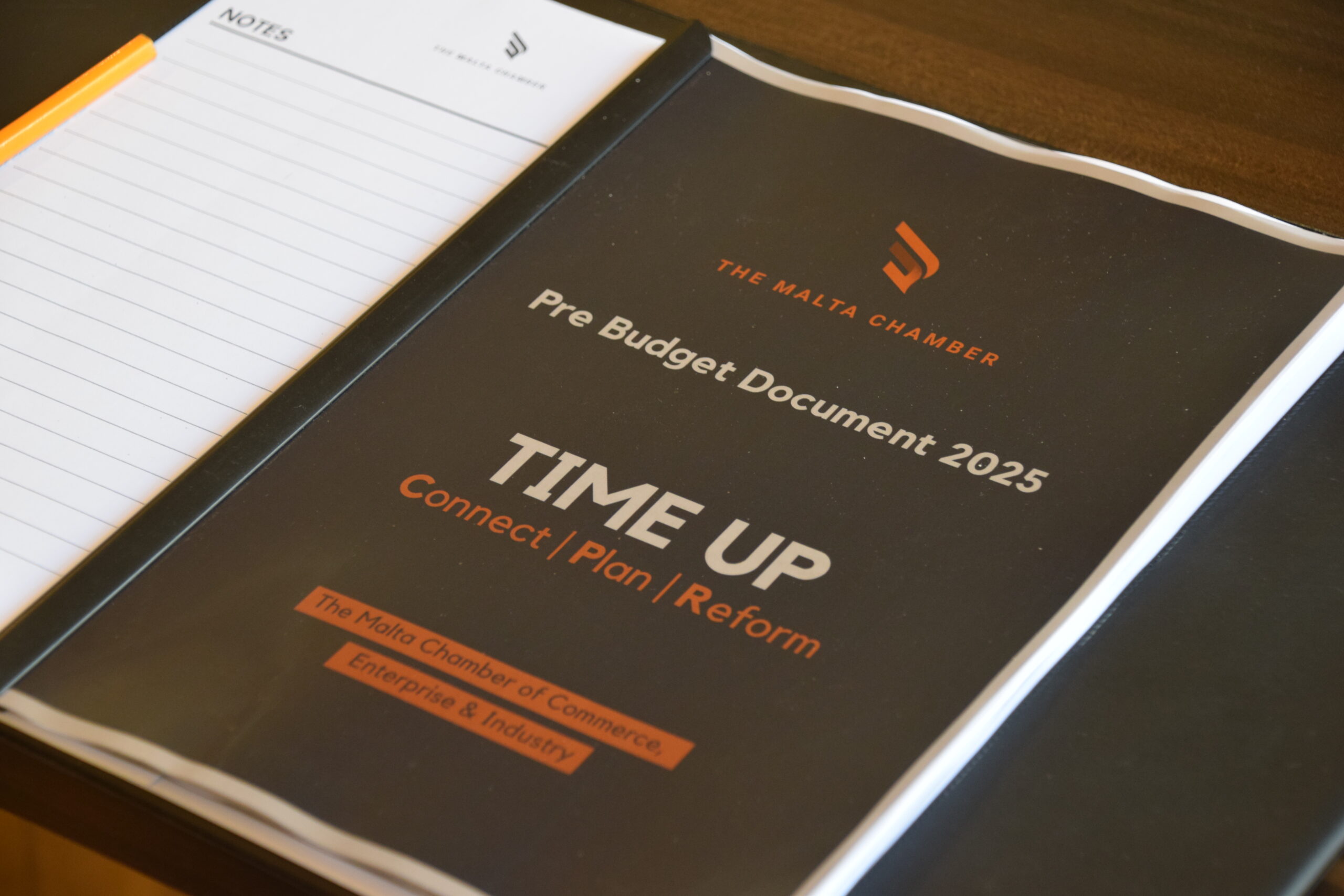
The Malta Chamber presents its Pre-Budget 2025 proposals
“The country urgently needs a cohesive Economic Vision with clear milestones and deliverables,” stated CEO Dr Marthese Portelli during the presentation of The Malta Chamber’s Pre-Budget 2025 Document in Valletta, urging the Government to Connect, Plan and Reform.

Accompanied by President Chris Vassallo Cesareo and several Council Members, Dr Portelli emphasized that while economic indicators like GDP growth, per capita income, and unemployment rates are important, they often fail to capture the broader societal costs of pursuing growth at any cost — a hallmark of the current economic model. She stressed the importance of shifting from a superficial assessment of economic performance to a broader and deeper analysis of the population’s well-being, now and in the foreseeable future, to ensure that economic policies prioritise sustainable development and enhance the quality of life for all citizens.
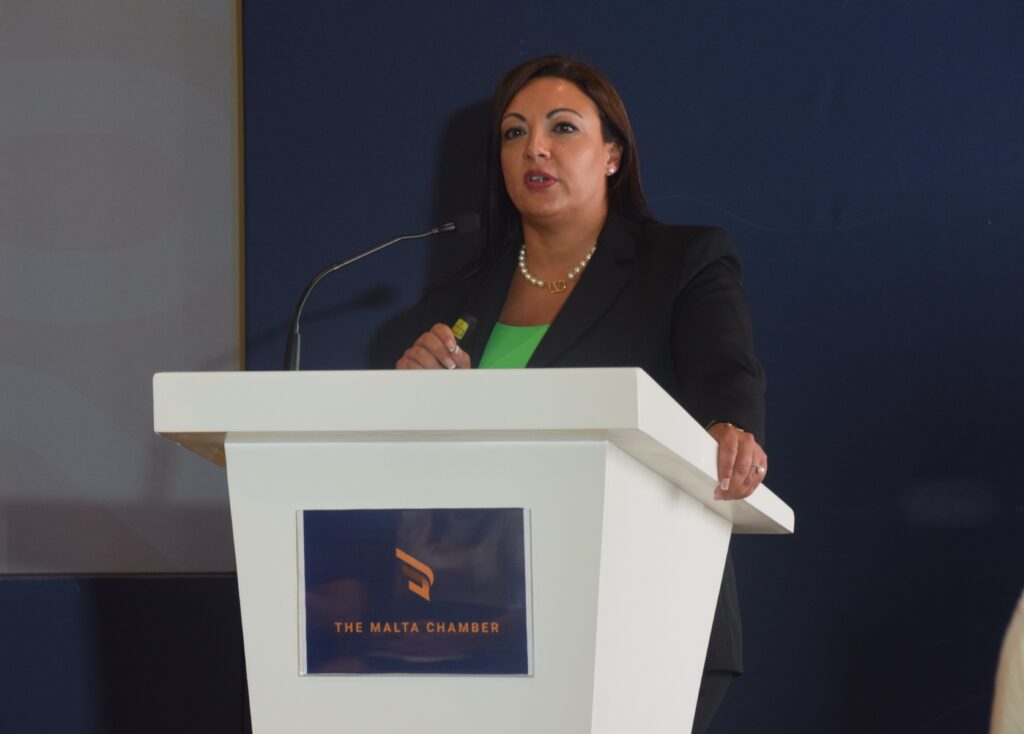
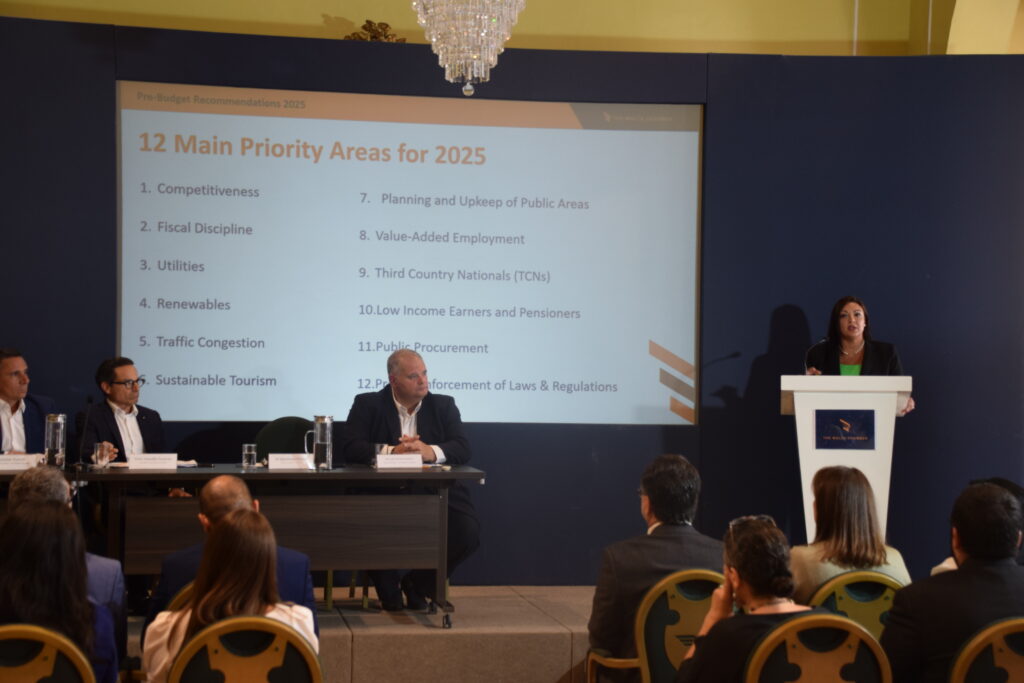
In his opening statement, President Chris Vassallo Cesareo stated that it is crucial to move away from labour-intensive activities to an economic model that is not dependent on population growth. It is also critical to invest in worker training and upskilling, as well as to invest in technology to boost efficiency and increase productivity.
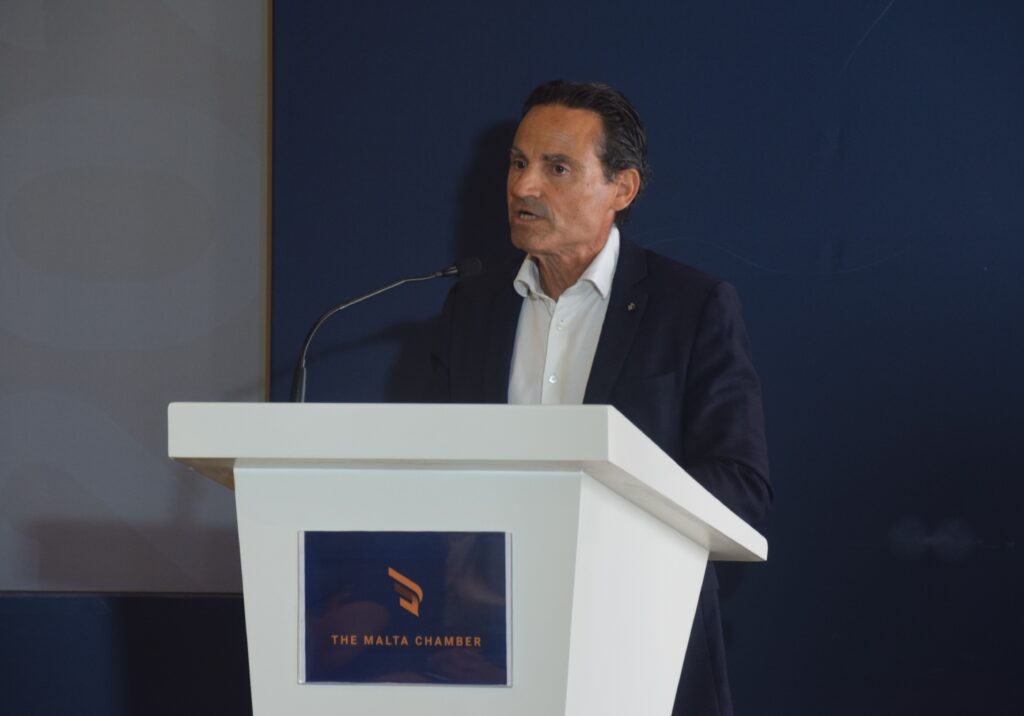
Dr Portelli further highlighted the need for diligent management of taxpayer funds, underscoring the Government’s obligation to ensure a good return on investment and avoid wasteful spending that provides little or no value to taxpayers.
The Malta Chamber has identified 12 key policy areas requiring urgent attention, with three critical proposals outlined for each. A summary of these priorities is presented in the accompanying graphic.
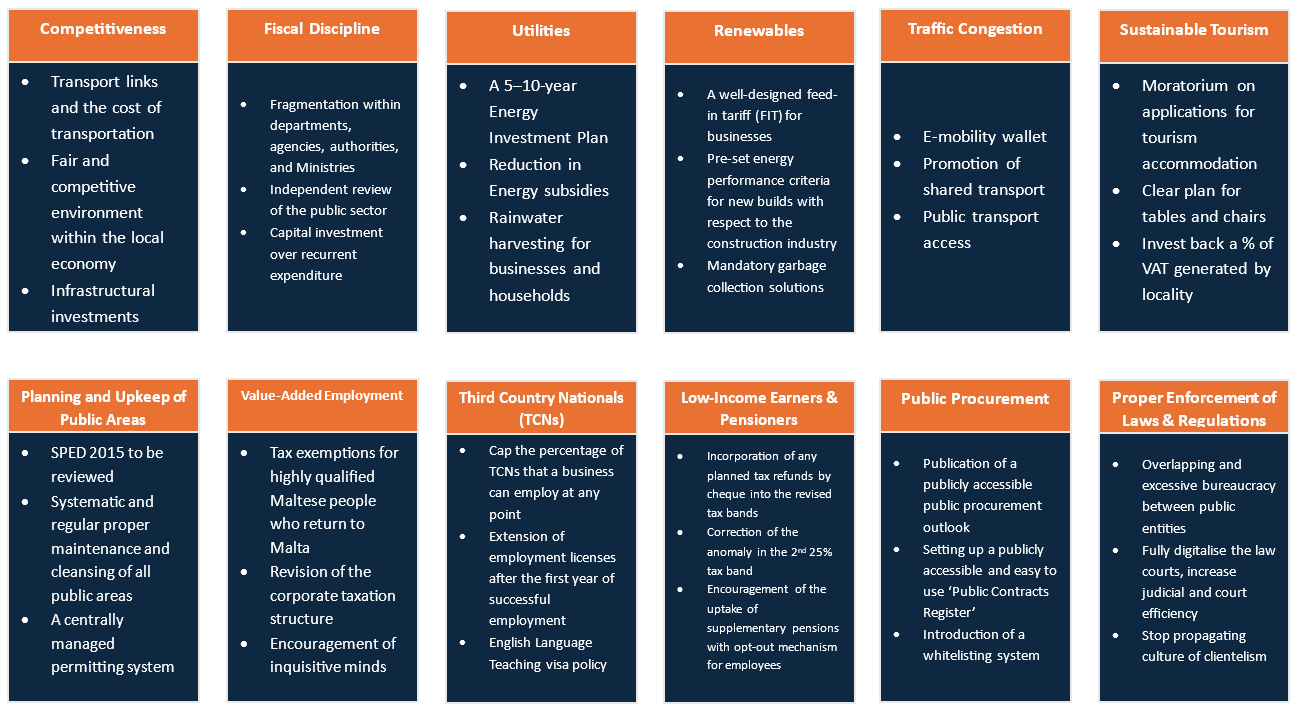
Throughout the presentation, The Malta Chamber conveyed a strong sense of urgency, calling on the Government to move beyond mere listening and adhere to principles of good governance. “The erosion of good governance is severely impacting ethical businesses and society at large. Government must decisively address unethical practices that undermine fair competition due to inadequate enforcement. Ethical businesses have had enough of this unfair competition,” Dr. Portelli asserted.
This year, The Malta Chamber’s focus is twofold: first, the tangible transformation of the current economic model into a well-being economy that benefits society as a whole; and second, the elimination of unethical operators whose misconduct is undermining ethical businesses.
The Malta Chamber has consistently raised these issues in various fora year after year. While there have been sporadic improvements, much work remains to be done. The table below outlines the status of the proposals presented in last year’s pre-budget document. Of the 219 proposals submitted last year, only 1.8% have been fully implemented, 18.7% have been partially implemented, while 74.9% remain pending without a decision. Only 4.6% were rejected.

Finally, The Malta Chamber of Commerce, Enterprise and Industry reiterates that over the past years, it has presented numerous documents and proposals, consistently highlighting these concerns and offering solutions. These include:
1. Ethical Business Calls for Change – A Manifesto for Good Governance: A policy document with 60 proposals on good governance and best ethical standards and practices for the country, aimed at guiding necessary political, social, and economic reforms.
2. Time to Step Up – Recommendations for the Next Legislature 2022-2027: A pre-electoral manifesto published in March 2022, featuring 100 recommendations in the lead-up to the 2022 general election.
3. Step Up and Act Now – Prosperity beyond GDP: A pre-budget 2024 proposal document published in September 2023, containing over 250 proposals.
The Malta Chamber of Commerce, Enterprise and Industry insists that “Time is up” and that Government needs to go beyond ‘listening’. Timely action to address genuine concerns is required. Weak policy responses to major red flags have induced a culture of complacency and lack of healthy ambition within the public sector that is impacting the performance of businesses and ordinary citizens as well. Critical issues need to be dealt with expeditiously: CPR is called for.
...
...


...


...
